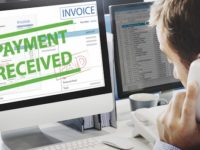Despite a renewed focus and increased advocacy for improved payment times, the latest survey from small business platform Xero reveals that late payments still remain a major issue among Australian small businesses and sole traders.
The survey of more than 1000 Australian small businesses and sole traders reveals that 63 per cent of our small businesses and sole traders say they deal with customers or clients paying late, which has caused stress for the owners and others in the business (35 per cent). Additionally, 24 per cent have to delay payments to themselves and 23 per cent to their own creditors or suppliers because of the knock-on effect of being paid late by customers.
The research also reveals that more than 45 per cent of respondents find the entire invoicing process stressful, with the average small business spending two business days (12.4 hours) every month on invoice management alone. Meanwhile, 30 per cent spend more than five hours solely creating invoices, while 22 per cent spend the same amount of time either chasing late payments, and 19 per cent correcting errors in invoices.
For those dealing with customers or clients paying them late, 23 per cent cited other small businesses as not paying on time, with large businesses closely behind on 21 per cent. The report noted that small businesses had to wait 23.7 days on average to be paid by their customers, which is the longest wait since September 2020
“It is clear that the delays in invoice payments have a knock-on effect that’s felt among the small business community as it impacts their ability to pay their suppliers who are often small businesses themselves,” Joseph Lyons, Managing Director of Xero Australia & Asia, said.
Meanwhile, despite the numerous benefits it offers, the research also shows that e-invoicing is relatively unknown and not yet widely adopted among Australian small businesses, with 36 per cent completely unfamiliar with the system.
“While invoice management is key to healthy cashflow, it can be overwhelming for time-poor small-business owners and sole traders,” Lyons said .”E-invoicing, a new way to invoice, allows businesses and government departments to electronically exchange invoices between accounting sofware systems, without manual data entry. This has the potential to facilitate faster payment times, help to boost cashflow and reduce stress for small-business owners.
“E-invoicing holds huge potential for small businesses and sole traders, arming them with one of the tools they need to thrive and, in turn, helping bring the promise of a strong recovery for us all across the country,” Lyons added. “But, for this vital shift to take of, we’ll need to see widespread adoption beyond small business. For the network to grow, it’s crucial that both government and big business play their role in enabling this to occur. It’s promising to see the steps governments, both federal and state, are already taking.”















